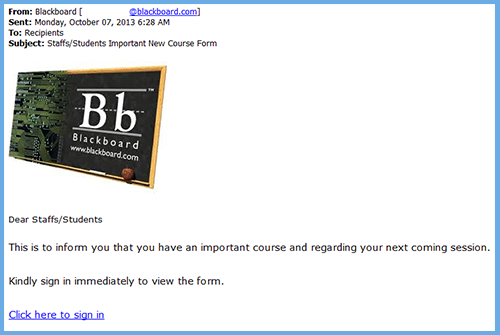
This scam email is impersonating Blackboard and attempting to trick users into signing into their false Drexel Learn site. Note the odd syntax.
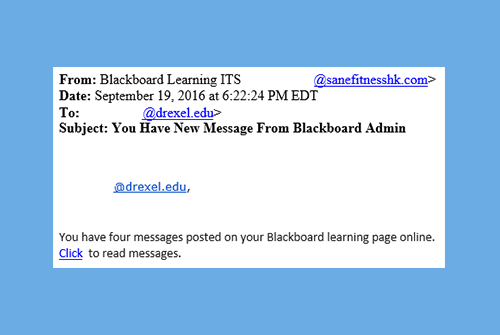
This scam email informs you that you have new messages in Drexel Learn, in an attempt to get you to click their link and give them your sign-in credentials.
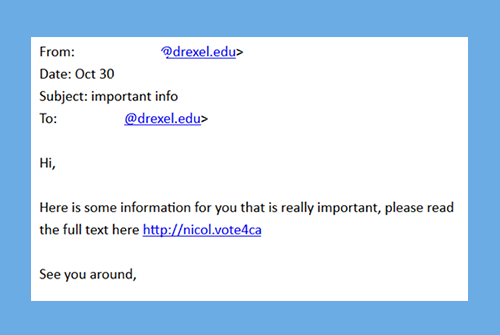
This message was "spoofed" or possibly sent from a hacked account.
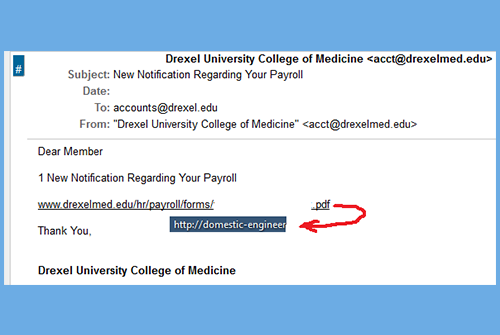
This email looks like it came from the College of Medicine. But hover over (DON'T CLICK!) the link and you will see the very non-Drexel place it goes.
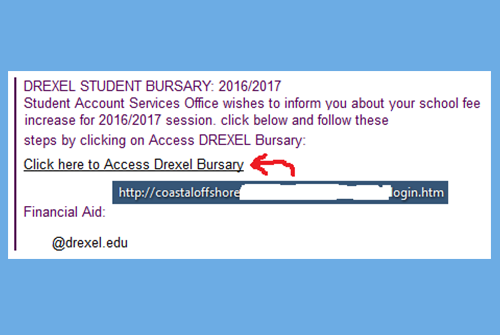
This scam wants you to sign in via their link so they can steal your credentials. Hover (don't click) over the link, and you'll see where it really goes: some non-Drexel "offshore" domain. Not at all legitimate.
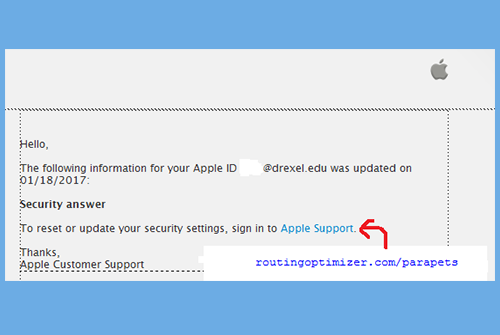
This scam steals Apple's template for a notification message that, at first glance, looks real. However, hover over the link (DON'T CLICK) to see the non-Apple place it goes.
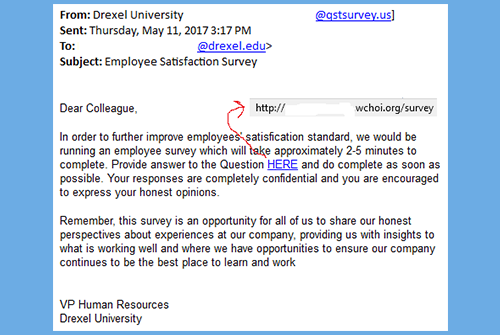
A clever impersonation scam of a VP at Drexel. The survey link goes to a phishing site, and is completely unaffiliated with Drexel.
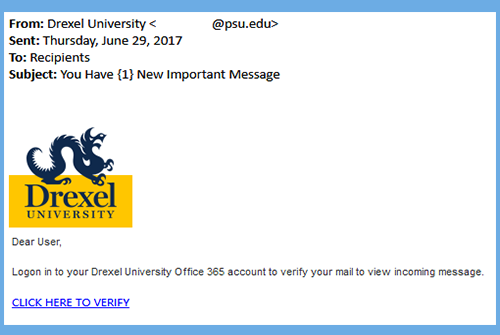
This scam looks legit with the logo and timing of distribution around our actual migration to Office 365. Closer inspections shows poor writing, and lack of Drexel template and approval, and non-Drexel hyperlink and "From" address.